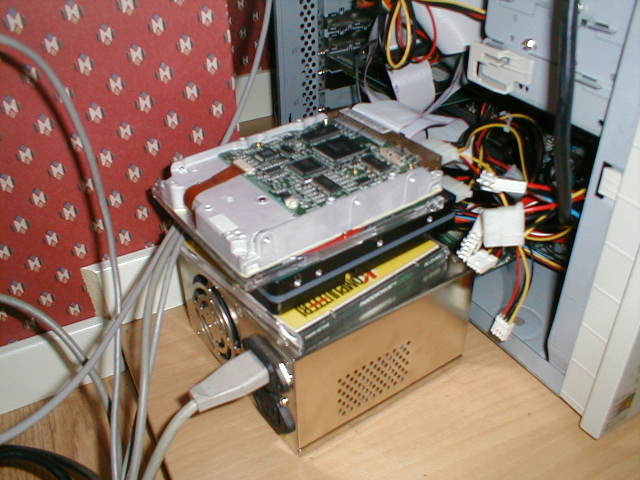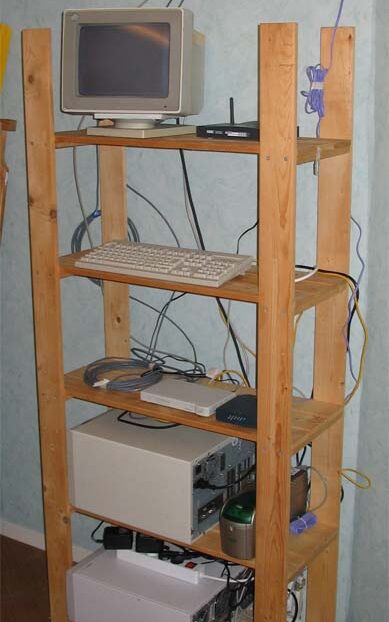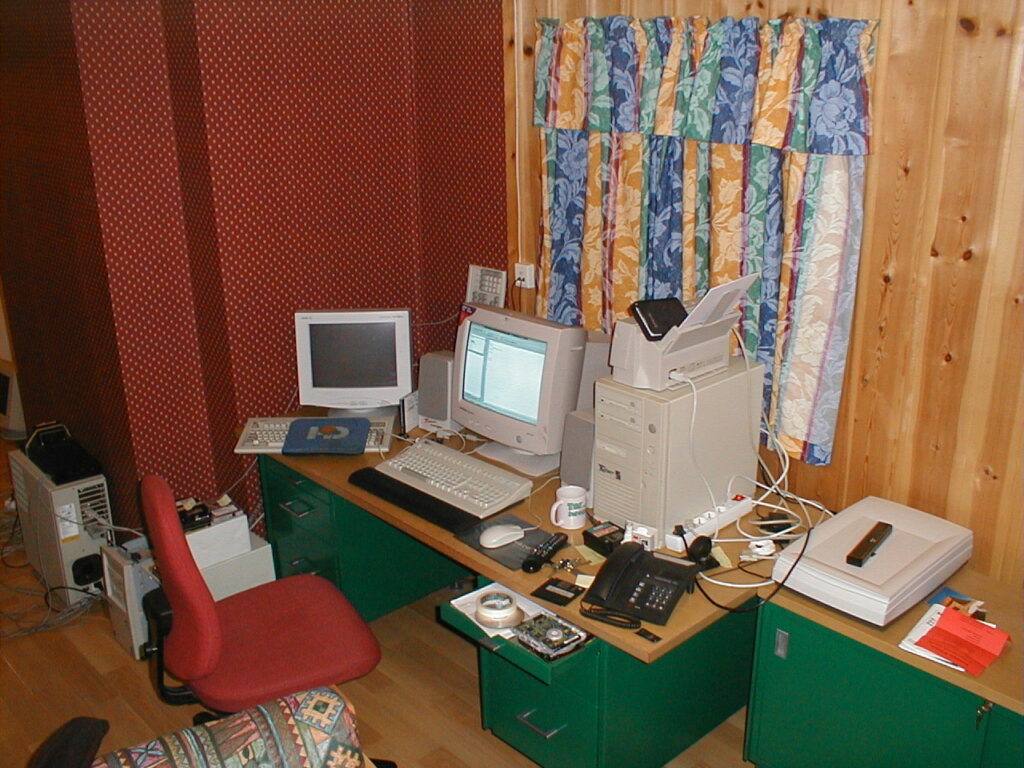This post got (un)popular on Hacker News. Let me just clarify that this post was meant to be humoristic and a bit tongue-in-cheek, but that seems to have been lost in translation between brain and keyboard.
I have heard the term “digital natives” applied to todays youth because they have grown up with the Internet, iPads, and whatnot. But I beg to differ. When it comes down to the meat and potatoes, they do not know jack shit.
My digital upbringing
In comparison, I grew up with the 286, 386, 486 and all the other x86’es. I learned not only about the meat and potatoes of computing; I learned the full haggis.
During my teenage years, I had computers upon computers in my room, some spilling their guts.

Later I had my own little server setup in the basement of my parents’ house. This was after ISDN dial-up, in the heyday of DSL technology. Look at this beauty: now this is a server rack.

Today, all of this have been reduced to a laptop in the corner running VMware’s free hypervisor, ESXi. I have one virtual machine on it, running Linux, and when the disk fail (it has happened before), I will do like any grown man without a backup would: cry. But you better take my word for it, because when it happens, this blog post will be gone with it.
Rocking that floppy
I have installed Windows 95 from floppy disks, or “the save icon” as the young kids would recognize it. Not only that, I have installed Linux on an IBM PS/2 server – again from floppies – and I got the thing online. But it is only that much you can do with a 486 on a rather obscure hardware.
This weird knowledge has helped me in career. Installing weird stuff on weird stuff. Making DOS talk to Novell NetWare. Write small custom programs to deal with big proprietary hardware.
Digital natives my ass, all they do is stream videos on YouTube and Twitch. Let me share my digital upbringing in full by showing you this image:

On the far left you can spot an IBM PS/2 server with a 100 Mbit hub on top with a custom power supply, the original failed during a thunderstorm. Then there is a Linux “server”, the one with the guts hanging out on the first image. Finally, on the desk, my main computer at the time, a 230 MHz(?) machine with Windows 98 running.
If anybody is a digital native, it is me. I did not just grow up with computers, I grew up alongside them.